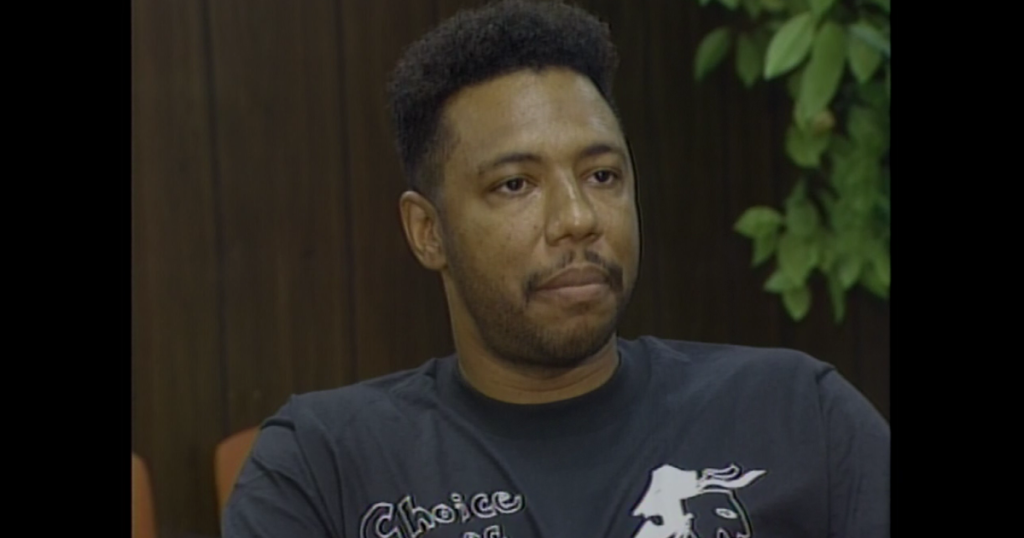On a significant day in U.S. criminal justice, President Trump has commuted the sentence of Larry Hoover, a prominent figure in Chicago’s Gangster Disciples gang, who was serving multiple life sentences. Hoover, aged 74, co-founded the notorious gang and was previously convicted of various crimes, including murder. While this commutation may bring some closure to a decades-long legal battle, questions remain regarding Hoover’s potential release timeline and ongoing state sentences.
| Article Subheadings |
|---|
| 1) Background on Larry Hoover and His Crimes |
| 2) The Commutation Decision and Its Implications |
| 3) Reactions from Legal Experts and Advocacy Groups |
| 4) A Look at Hoover’s Advocacy for Change |
| 5) Future Outlook for Larry Hoover |
Background on Larry Hoover and His Crimes
Larry Hoover, the co-founder of the Gangster Disciples, has been a controversial figure in American criminal justice. Born in Chicago, he quickly rose to prominence within the gang, leading it to become one of the most notorious drug trafficking organizations in the United States. Hoover was initially sentenced to 200 years in state prison for the 1973 murder of 19-year-old William “Pooky” Young. This sentence was further compounded in 1997 when he received six life sentences for federal racketeering charges stemming from his continued leadership of the gang while incarcerated. Federal authorities estimated that during his reign, the Gangster Disciples boasted around 30,000 members and generated an annual revenue exceeding $100 million through illegal drug sales.
The Commutation Decision and Its Implications
President Trump’s commutation of Hoover’s sentence has significant implications for both Hoover and the broader conversation surrounding criminal justice reform in the United States. The decision came after decades of Hoover’s supporters advocating for his release, arguing that he has shown considerable personal growth and rehabilitation. However, while Hoover’s federal sentence has been commuted, he still faces the remaining portion of his state sentence from the early 1970s. It remains unclear when or if he will be eligible for final release from custody, as his attorneys have noted that he has spent nearly 30 years in solitary confinement, raising questions about the effectiveness of such conditions on rehabilitation.
Reactions from Legal Experts and Advocacy Groups
The commutation has elicited mixed reactions from legal experts, law enforcement officials, and advocacy groups. Ron Safer, the lead prosecutor in Hoover’s federal trial, expressed disappointment, emphasizing that Hoover’s history of crime warranted severe punishment. He highlighted Hoover’s role in running drug operations from prison and pointed out recorded statements where Hoover encouraged young teens to engage in drug sales. On the other hand, Hoover’s attorneys, including Jennifer Bonjean and Justin Moore, celebrated the decision, claiming it represented a victory for justice and rehabilitation. Grassroots activists have echoed these sentiments, viewing the commutation as a chance for Hoover to contribute positively to society.
A Look at Hoover’s Advocacy for Change
Despite his criminal past, Larry Hoover has made attempts to position himself as a figure advocating for anti-violence initiatives, especially in Chicago’s troubled neighborhoods. In a previous interview, he discussed the perils of gang violence and shared insights on how prolonged incarceration had influenced his perspective on these issues. Advocates argue that his experiences could provide valuable lessons for young people who find themselves trapped in similar circumstances. Hoover’s supporters have stressed that people deserve second chances, pointing to his decades behind bars and subsequent growth as a reason for hope.
Future Outlook for Larry Hoover
As it stands, the future remains uncertain for Larry Hoover. While he is no longer facing federal charges, he still must contend with the lengthy state sentence for which he has yet to be fully resentenced. Conversations around his potential release are expected to evolve as public opinion shifts and dialogues about criminal justice reform gain traction. Advocates for Hoover, including former gang members like Wallace “Gator” Bradley and Harold “Noonie” Ward, are optimistic but acknowledge the complexities of the legal system that will dictate Hoover’s next steps. Meanwhile, officials like Illinois Governor JB Pritzker have yet to comment on whether they would consider a commutation at the state level, which could further impact Hoover’s fate.
| No. | Key Points |
|---|---|
| 1 | Larry Hoover, co-founder of the Gangster Disciples, had been serving multiple life sentences in prison. |
| 2 | President Trump commuted Hoover’s federal sentence amidst discussions on criminal justice reform. |
| 3 | Hoover still faces a 200-year state sentence related to a murder committed in 1973. |
| 4 | Reactions to the commutation have been mixed, with advocates celebrating it as a step toward justice. |
| 5 | The outcome of Hoover’s life moving forward will depend on future legal proceedings concerning his state sentence. |
Summary
In conclusion, the commutation of Larry Hoover’s sentence by President Trump marks a pivotal moment in the ongoing debates surrounding criminal justice reform in the United States. With mixed reactions from legal experts and advocates, Hoover’s situation highlights the intricacies of rehabilitation, punishment, and the quest for second chances. As discussions continue, Hoover’s future could set a precedent for how similar cases are treated in the future.
Frequently Asked Questions
Question: Who is Larry Hoover?
Larry Hoover is the co-founder of the Gangster Disciples, a major street gang in Chicago, and has been convicted of multiple crimes, including murder and racketeering.
Question: What does it mean that Hoover’s sentence was commuted?
A commutation means that Hoover’s federal prison sentence has been reduced, but it does not erase the convictions or the underlying charges, nor does it necessarily result in immediate release.
Question: What are the potential implications of Hoover’s commutation?
Hoover’s commutation could pave the way for discussions on judicial reform and rehabilitation, potentially influencing similar cases in the future.
